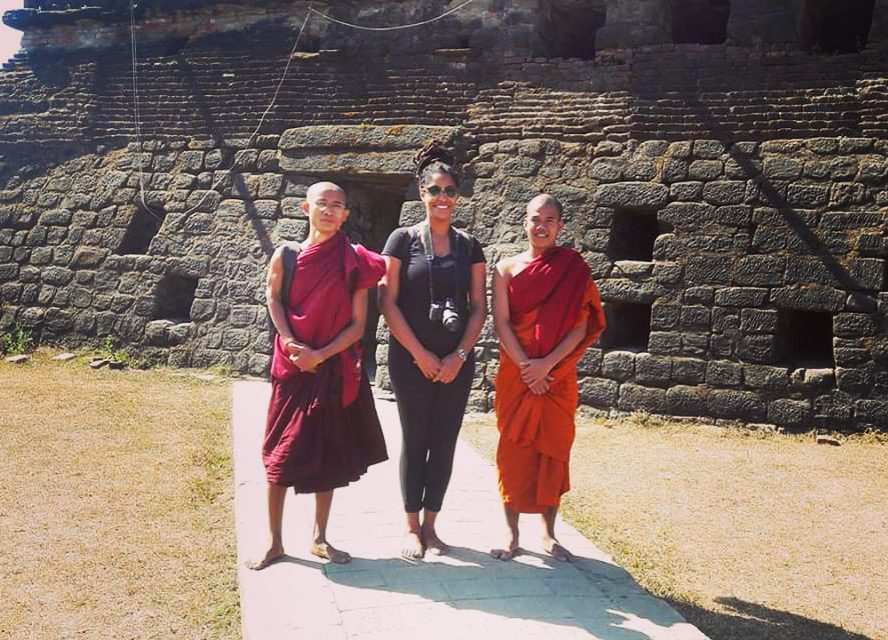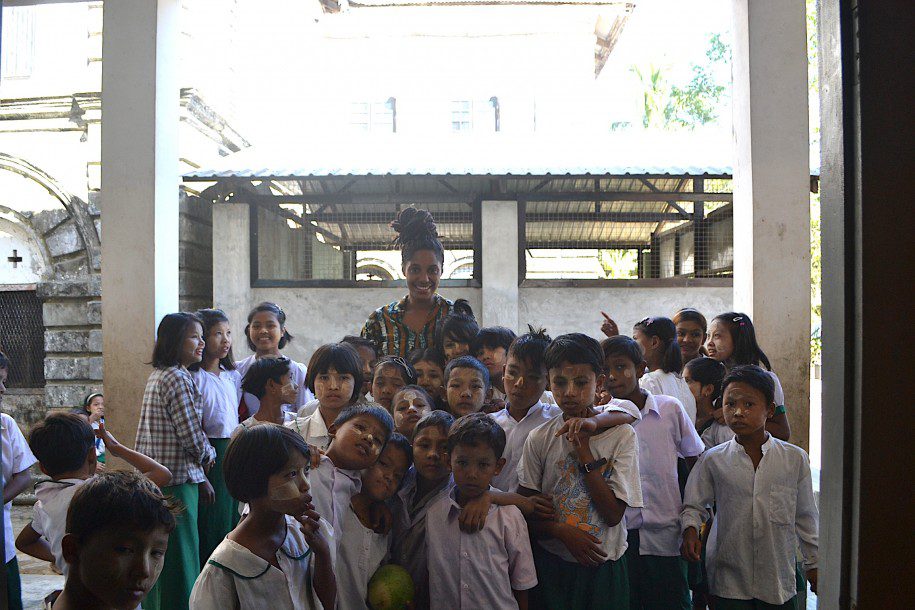This is part of a series of reports from Harvard students who have traveled to South Asia with support from a SAI grant.
By Cresa Pugh, PhD Social Policy, 2022
I am immensely indebted to the South Asia Institute for their generous support of my winter session research project in Burma. Over the course of the 28 days that I was in the country I was able to successfully complete each of the activities outlined in my proposal, which included conducting archival research on colonial nation-building, field research such as interviewing and expanding my network of key research informants. In addition, I was able to visit culturally, historically and socially important sites and organizations relevant to my research topic.
When I applied for the research grant I had planned to explore the meaning of statelessness and citizenship for the Muslim Rohingya ethnic group. Once I arrived and began conducting interviews though, my interest shifted slightly to an understanding of the effects of Buddhist ultra-nationalism on ethnic minority groups, particularly Muslim communities such as the Rohingya. This slight tweak in my research question allowed me to have more expansive interviews and conversations as well as expanding the literature available to me to investigate this particular question.
Having the opportunity to conduct this exploratory research has already had significant rewards in terms of my academic and professional trajectory. Based on the information that I collected in the field, I have begun writing a paper which has been accepted by two academic conferences at which I will present in April and May. In addition, I plan to use this research as the basis for the empirical data that I will use for my PhD qualifying paper. I intend to continue my research in Burma for the foreseeable future with the hopes of giving back to the place I hold so dear.
Activities
Interviews and Conversations
During my fieldwork I conducted interviews and held conversations with approximately 27 individuals representing over 20 different organizations or agencies. On the first day I interviewed a civic engagement instructor who works at the U.S. Embassy who provided a rich historical context of the conflict in Rakhine State.I also met with a woman who conducts capacity building for a social inclusion organization in Rakhine State. I later interviewed two Buddhist staff persons with this same organization about their decision to provide development support to their Muslim neighbors, which has significant safety and political implications.I interviewed a former political prisoner and activist who is doing peace and reconciliation work internationally.
I met with a doctor and educator who also works for a French oil company in Rakhine who was able to provide valuable insights into the economic and political dynamics at work in Rakhine. I also met with the co-founders of a large-scale social enterprise that has been doing a great deal of political and economic development research in Rakhine in conjunction with a Harvard scholar at the Kennedy School. I had dinner with a Member of Parliament and her family, who spoke for hours about the political, social and religious situation across the country.
I also interviewed several academics who are working on a range of projects from land rights in ethnic states to Chinese oil imperialism in Southern Myanmar. I hired a tour guide for a couple of days while I was in Sittwe who introduced me to several local civil society and international humanitarian organizations, to take me to meet his family who are activists, and to visit various culturally and religiously significant sites. I met with a woman who has been working in the region since 1996 – mostly on the Rohingya issue – and is currently a consultant to the military government on peace and reconciliation issues. I interviewed a woman who writes critical educational curriculum for high school and university students. I met with the representative of a large U.S-based philanthropic organization that supports social integration projects in Western Burma.
 I had coffee with a man who led the 1988 student revolution and fought against the Burmese Army during the last dictatorial regime, who is now heading a center for peace and reconciliation. I met with a young man who recently returned to Burma after having spent the last four years in the U.S. attending my alma mater Bates College and is now back in Yangon having successfully launched a liberal arts college in the city. I also had shorter, but rich conversations with individuals from the following organizations: the Office of the UN Resident Coordinator, World Food Program, Doctors without Borders, World Health Organization, Danish Refugee Council/Danish Demining Group, UN High Commissioner on Refugees, Kofi Annan’s Advisory Commission on Rakhine State, UN Office for the Coordination of Humanitarian Affairs, International Rescue Committee, Agency for Technical Cooperation and Development, and International Committee of the Red Cross.
I had coffee with a man who led the 1988 student revolution and fought against the Burmese Army during the last dictatorial regime, who is now heading a center for peace and reconciliation. I met with a young man who recently returned to Burma after having spent the last four years in the U.S. attending my alma mater Bates College and is now back in Yangon having successfully launched a liberal arts college in the city. I also had shorter, but rich conversations with individuals from the following organizations: the Office of the UN Resident Coordinator, World Food Program, Doctors without Borders, World Health Organization, Danish Refugee Council/Danish Demining Group, UN High Commissioner on Refugees, Kofi Annan’s Advisory Commission on Rakhine State, UN Office for the Coordination of Humanitarian Affairs, International Rescue Committee, Agency for Technical Cooperation and Development, and International Committee of the Red Cross.
Site visits :
I spent time going through files at the national archive related to the British Colonial period and the ways in which the British constructed ethnic identities and exploited religious differences during their nation-building project. I visited an internally displaced persons (IDP) camp in Sittwe which held Buddhist residents who had been displaced from their homes after an outbreak of violence between Buddhists and Muslims in 2012. Unfortunately I was unable to visit one of the many Muslim IDP camps due to security clearance issues. I also visited a number of temples and mosques in Yangon, Sittwe and Mrauk U, though both of the historic mosques in Sittwe had been shuttered and have been under heavy police protection following the 2012 attacks. Hence I was not able to enter these sites. I toured a monastery in Sittwe and interviewed teachers of the monastic school about their beliefs on the social and economic challenges in Rakhine State. I attended a soccer game between Rakhine State and Southern Myanmar teams, which was the first one ever held locally and had significant, though covert, political implications given that it was an ethnic state team versus a Burman dominant team.

